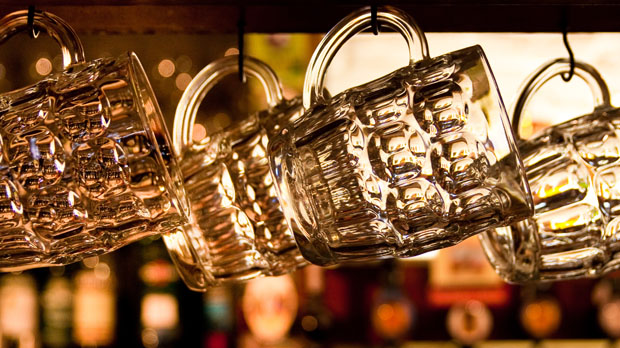Call to save pubs with more tax breaks
With an estimated 16 public houses closing in the UK each week, a think tank report calls for tax breaks for pubs which improve community life in order to help them survive.

With 16 pubs currently believed to be closing each week, the report by the Institute for Public Policy Research (IPPR) recommends a 50 per cent business rate relief for those who can prove they act as community hubs.
The report says this would help prevent the loss of more pubs which strengthen local networks, after a survey commissioned by the IPPR found a majority of people see pubs as the best place to keep up to speed with their community.
The British Beer & Pub Association (BBPA) this week reported 140m fewer pints of beer were sold in pubs last year, as they struggle to cope with competition from supermarkets, increases in tax on beer and changes in consumers’ tastes.
Rick Muir, associate director at IPPR, said: “Government must stop using a one-size-fits-all approach to licensed premises, which is killing off our community pubs. Instead, responsible well-run community pubs should be encouraged and supported.
“Our research shows community pubs aren’t just places to drink but also places where people meet their neighbours, where local clubs hold meetings and events, and which support many important local services such as village post offices and general stores.”
“Social value”
According to the researchers’ calculations, pubs that serve as community hubs can generate between £20,000 and £120,000 of “social value” each year.
To qualify to have half of their business rates back, pubs would have to show how they serve local communities by offering such benefits as job opportunities or free space for charities.
The report also suggests the relationship between big pub chains and their tenants should be reformed, and calls for the removal of a legal loophole which allows pubs to be demolished without planning permission.
Communities Minister Bob Neill said: “This government is already taking decisive action to support community pubs. We have doubled small business rate relief for two and a half years, which gives up to 100 per cent rate relief for small firms including pubs.
“Country pubs may also be eligible for rural business rate relief. On top of this, we have abolished the last government’s cider tax, are cutting red tape on live music in pubs, and are stopping unfair sales of alcohol below cost-price by supermarkets.
“We are also giving local councils new powers to introduce local business rate discounts, which could support pubs which offer community facilities.”
Under threat
Campaign for Real Ale (Camra), which carried out the research revealing that 16 pubs are closing every week, found that those in suburban areas are the worst affected.
The consumer group said that in two years 1,078 pubs have gone under in Britain’s suburbs, with eight closing every week, compared to six in rural areas and two in town high streets.
Camra Chief Executive Mike Benner said: “While high street city centre venues are showing a degree of resistance in the current climate, both suburban and rural areas are under threat as wholesale pub closures deprive more local people of a community centre.
“Pubs are vital for social cohesion and cultural integration, and therefore the government must act swiftly to repair the damage inflicted upon local communities by offering genuine support for enterprising and hard-working licensees.”
Worrying
The research also found that pubs which are not tied to a particular brewery or pub chain are faring better, with 10 tied pubs closing every week compared to seven which are free of tie.
British Beer and Pub Association chief executive Brigid Simmonds said: “We will be looking at these proposals in detail, but we can certainly agree with some of the key points – the immense social value of pubs, and the pressing need to address the huge increases in beer tax we have seen in recent years.
“Our own figures released today show beer sales in pubs down 3.7 per cent in 2011, which is closely linked to the still worrying level of pub closures. More supportive government policies would allow pubs to create jobs in local communities and help the economy back to growth.
“We also agree there is certainly a need for the government to address why regulation and red tape have fallen so heavily on community pubs in recent years – yet more and more alcohol is drunk at home.”